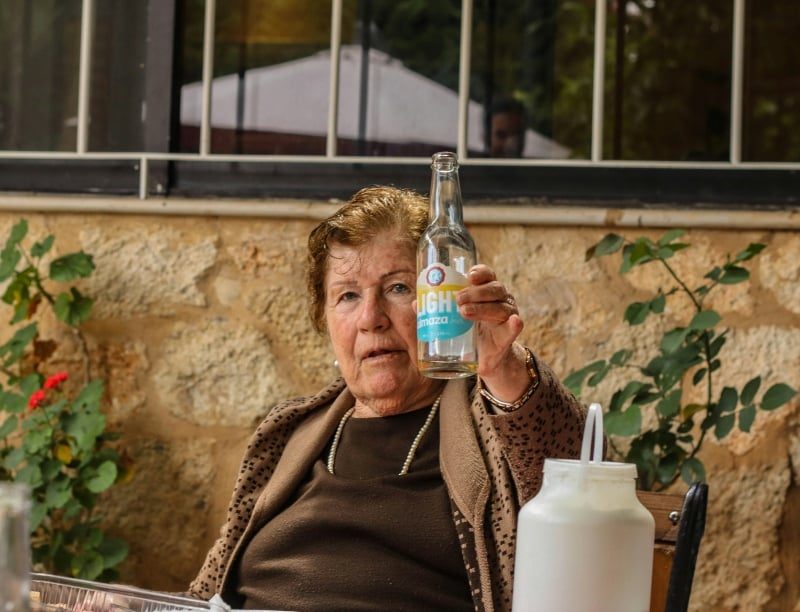By Daisy Yuhas, Public Health Watch
Texas lawmakers have agreed to boost spending on Alzheimer’s disease and related dementia, which afflict some 400,000 of the state’s residents and have exacted an especially heavy toll on Latinos in the Rio Grande Valley.
The Texas Legislature, which meets every two years, committed to $14.2 million in dementia-specific spending over the 2024-2025 biennium, a $4.2 million increase over the current two-year budget.
The biggest funding bump – from $1 million to $5.5 million – will go to the Alzheimer’s Disease Program, which provides public education and collects data on the disease. Biennial spending on research will fall slightly, from $9 million to $8.7 million, though an additional $1 million will go to a diagnostic and treatment center at the University of North Texas.
Lawmakers also passed bills that enhance training requirements for law enforcement officers and staff at assisted-living facilities who interact with dementia patients. “This was one of the biggest sessions related to dementia and Alzheimer’s programs ever in Texas,” said state Rep. Giovanni Capriglione, a Republican from Southlake who co-authored one of the bills.
And yet, advocates say, it’s still not nearly enough. The Alzheimer’s Association, for example, had sought $10 million over two years for the Alzheimer’s Disease Program. The group points out that Florida, which has an estimated 580,000 residents with dementia, spends $44.1 million per year on comparable initiatives.
“We’re very appreciative of what the Legislature did give us,” said Melissa Sanchez, the association’s Texas public policy director, “but there’s still a lot of work that needs to be done.”
Capriglione agreed. “Texas is a big state,” he said. “We should be at a higher amount.”
In February, Public Health Watch and Univision reported that dementias are surging in the Rio Grande Valley, where the population is overwhelmingly Latino. People 65 and older who live in the Valley’s four counties are almost twice as likely to be diagnosed with dementia as people of the same age in most other parts of the country, according to Medicare data. In Starr County, for example, nearly 1 in 4 seniors had Alzheimer’s or a related dementia in 2021. That figure compares to 1 in 14 nationwide.
Scientists don’t fully understand what causes Alzheimer’s, but several social and environmental factors increase risk for this disease. These include poor access to health care, high rates of diabetes and exposure to air pollution.
‘Most burdened state’
While other large states—including Florida and California—have more residents with Alzheimer’s, a recent analysis shows that Texas is the most burdened state in the country, based on a combination of factors including high mortality linked to the disease and the state’s population growth.
Alzheimer’s and related conditions take a significant toll on patients and their families. Many people not only endure grief and emotional distress as they watch loved ones succumb to an incurable disease—they also have to make significant financial decisions around caring for that person. Memory-care facilities can cost upwards of $50,000 annually in Texas. Families that opt to keep loved ones at home may face many other costs. At least one million unpaid caregivers live in Texas; the Alzheimer’s Association values their combined hours of unpaid labor at $25.9 billion.
Since 2005, the Texas Legislature has provided more than $60 million in funding for research into Alzheimer’s and related conditions. That money has supported a consortium of researchers across the state, who have been studying topics including the development of earlier dementia-detection methods, new treatment approaches and interventions that could support caregivers.
Funding for direct services and other resources that can help patients and caregivers, however, has been meager. Prior to the newest budget, the Alzheimer’s Disease Program had received just $2.16 million since its creation in the 2018-2019 biennium. With limited funds, the program has focused largely on developing public-education campaigns to improve general knowledge about dementia and promote earlier detection of the disease. In addition, it has collected data on dementia in Texas and published information for patients and caregivers online.
With $5.5 million set aside for 2024-2025, the program can expand. Though the state’s budget does not offer detailed project descriptions, it lists several program goals, including carrying out “initiatives related to caregiver support.” The program will also gain a staff member to coordinate its efforts with other state agencies.
Sanchez, of the Alzheimer’s Association, noted that the Alzheimer’s Disease Program is taking steps to ensure that more dementia patients receive a diagnosis as early as possible. Many new treatments are effective at stalling Alzheimer’s progression only if they are administered in the disease’s earliest stages.
But Texas needs to do more, she said. In particular, it could benefit from emulating programs in other parts of the country. For example, a dozen states, including West Virginia and Arkansas, have created respite programs that allow people to leave loved ones in the care of individuals with dementia-specific training.
“There are still states out there that are significantly smaller in size and budget that have much more meaningful programs for Alzheimer’s families,” Sanchez said.
—
This article was originally published by Public Health Watch, a nonprofit investigative news organization. Find out more at publichealthwatch.org. 
***
You Might Also Like These From The Good Men Project
 Compliments Men Want to Hear More Often
Compliments Men Want to Hear More Often  Relationships Aren’t Easy, But They’re Worth It
Relationships Aren’t Easy, But They’re Worth It  The One Thing Men Want More Than Sex
The One Thing Men Want More Than Sex  ..A Man’s Kiss Tells You Everything
..A Man’s Kiss Tells You Everything Join The Good Men Project as a Premium Member today.
All Premium Members get to view The Good Men Project with NO ADS. A $50 annual membership gives you an all access pass. You can be a part of every call, group, class and community. A $25 annual membership gives you access to one class, one Social Interest group and our online communities. A $12 annual membership gives you access to our Friday calls with the publisher, our online community.
Register New Account
Log in if you wish to renew an existing subscription.
Username
First Name
Last Name
Password
Password Again
Choose your subscription level
- Yearly - $50.00 - 1 Year
- Monthly - $6.99 - 1 Month
Credit / Debit Card PayPal Choose Your Payment Method
Auto Renew
Subscribe to The Good Men Project Daily Newsletter By completing this registration form, you are also agreeing to our Terms of Service which can be found here.Need more info? A complete list of benefits is here.
—
Photo credit: Juanita Arevalo, 95, of Hidalgo County, Texas, began to show signs of dementia in 2021, after a hip fracture left her bedridden. The Rio Grande Valley, where she lives, has some of the highest rates of Alzheimer’s and related dementias in the country. CREDIT: Victoria Bouloubasis
The post Texas Legislators Boosted Alzheimer’s Program Funding. It’s Not Enough. appeared first on The Good Men Project.
Original Article










